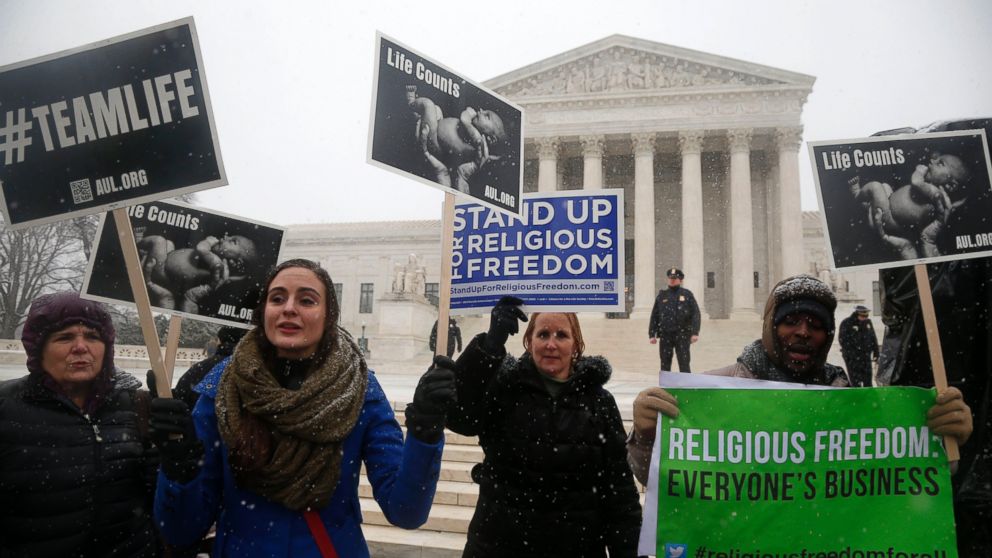Supreme Court Considers Contraception Mandate
Today's spirited argument was the second biggest legal test of health care law.

March 25, 2014— -- The Supreme Court today showed its deep and familiar ideological rifts over the national health care law, voicing pointed questions and highlighting its sharp division on whether for-profit companies must provide contraception coverage even if it violates the religious views of the corporate owners.
The spirited and fast-paced 90-minute argument was the second biggest legal test to the Affordable Care Act in two years.
The posture and questions of the justices – always risky to divine – suggest that the Supreme Court might wrestle with this for months and the outcome will likely be uncertain until the ruling is announced this summer.
Justice Anthony Kennedy, whose skepticism of the health care law is well established after siding with conservative justices in trying to strike down the individual mandate in 2012, raised issues that could have bolstered the arguments of both sides. But even as he pointedly asked questions about the rights of female employees, he also said the beliefs of corporate owners could not be ignored.
He grew animated when he challenged the government on whether its argument about the rights of women would apply to paying for abortions.
“A profit corporation could be forced to pay for abortions,” he said. “Your reasoning would permit it.”
One central issue is whether for-profit businesses have religious rights. The Religious Freedom Restoration Act of 1993, which passed overwhelmingly in Congress and was signed into law by President Bill Clinton, is at the heart of the argument from the Oklahoma company –- Hobby Lobby -- leading the challenge before the high court.
The owners of Hobby Lobby, an Oklahoma City-based arts and crafts store with more than 500 locations across America and more than $3 billion in sales, were sitting in the courtroom today. At times, several members of the Green family, the owners, smiled and whispered during the arguments.
Hobby Lobby does provide insurance coverage for many kinds of contraception, but it has objected to morning-after pills, intrauterine devices and other drugs and devices that they believe prevent embryos from implanting in the womb. Company officials say they believe such contraceptives constitute abortion and would violate their religious beliefs.
Justices Ruth Bader Ginsburg, Elena Kagan and Sonia Sotomayor warned that a ruling in favor of Hobby Lobby could lead to bigger concerns about science and philosophy. In repeated questioning, which Sotomayor began only 30 seconds into the argument, they asked what would stop corporations from being unwilling to pay for vaccinations or blood transfusions.
“The parade of horribles ought to sound familiar,” argued Paul Clement, the lawyer for Hobby Lobby and another company, a Pennsylvania wood cabinet company owned by a Mennonite family. “That’s not going to happen in the real world.”
Justice Stephen Breyer, another key voice on the court, zeroed in on questions about religious liberty. He pointedly asked the government’s lawyer, Solicitor General Donald Verrilli, why a corporation couldn’t hold religious views.
He put forward a hypothetical example of five Jewish butchers who decided to form a corporation. Why, he asked, should they relinquish their beliefs? Yet he repeatedly cautioned those sitting in the packed courtroom not to read anything into his questions, pointing out again and again that he was simply seeking answers rather than voicing his opinion.




